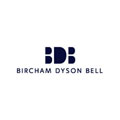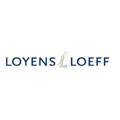In a competitive world, differentiation is the key to winning important tenders. At the same time, truly differentiating yourself is one of the hardest tasks when you are competing against similar professional service firms.
Unless you can clearly articulate why you should be appointed, your target client will find it impossible to distinguish your firm from your competitors.
Furthermore, once you have identified your differentiation, you need to tell your client why that is of benefit to them as they will not necessarily understand the benefit in the way that you want them to. Benefits are best understood in terms of “saving money”, “saving time” and “greater comfort”.
Unless you can find that elusive differentiation, the tendency is to compete only on price, and that will not be in anyone’s interest.
With this in mind, here are some thoughts to consider when trying to differentiate your firm in the future.
Formal factors vs. informal factors
When deciding which firm to appoint, many professional service firms assume prospective clients use formal factors such as reputation, experience and knowledge etc. to determine who is asked to the table or short listed. In reality however, they will often use informal factors such as relationships, referrals and chemistry as the main drivers. Naturally such an important decision is not as clear cut as that because price and the involvement of a procurement group will have an impact. When it comes to differentiation, it is much harder to differentiate using informal factors because they are highly subjective – but often, that is where the tender is won or lost.
Prove your people’s worth
It is easy to say that the differentiation of a firm is their people. That is often true but that is not easy to prove. It is the way the team assigned to the tender works with the client, their motivation to help their client succeed and the individual set of skills, both technical and personal that will influence the client to appoint them.
“I” rather than “we”
Try using personal case histories in documents and presentations to illustrate these points. Use the “I” word rather than the “we” word as often as possible to demonstrate that you are taking ownership.
Take a walk in your client’s shoes
Finally, on a related point, when you are asked what value your firm can add to the client, think about the decision makers as individuals and not as a group. What may be important to one decision maker and add huge value may not be so important for another and vice-versa. Only by putting yourself in your client’s shoes will you start to see it from their point of view.
Differentiation is never easy, but when you focus on differentiating yourself using informal factors and you identify how you can add value to the individual decision makers, you start to give them reasons to appoint you and potentially grounds to justify a higher price than your competitors.
To discuss how you can improve your differentiation in tenders, please contact us on +44 (0)870 428 8191 or email info@theinfluencebusiness.com.















